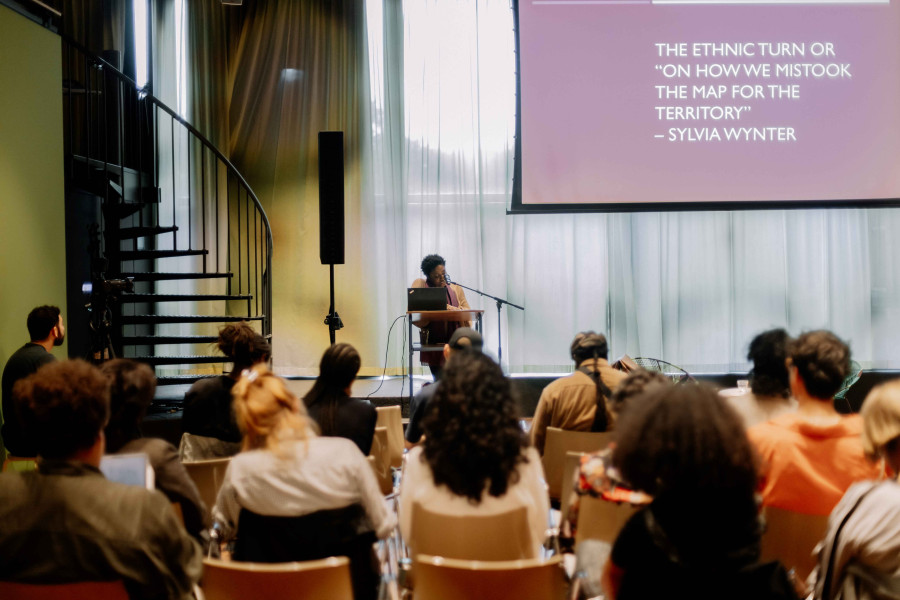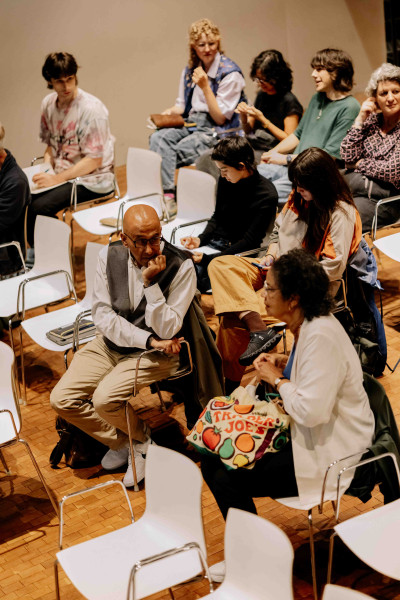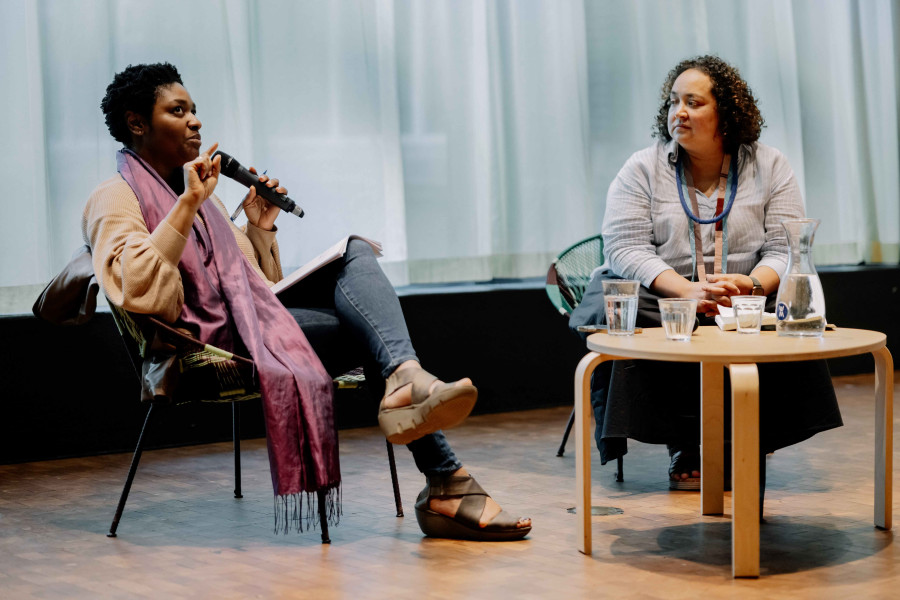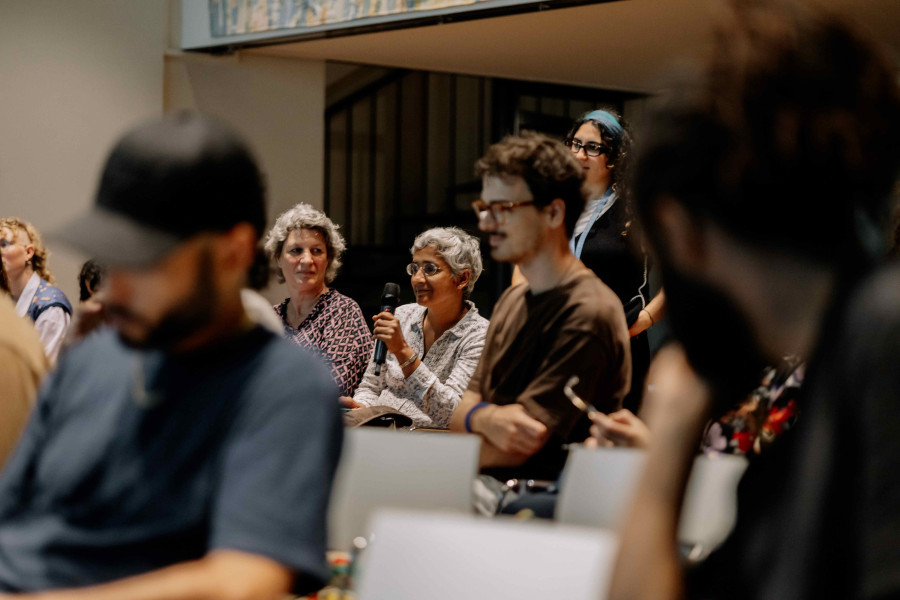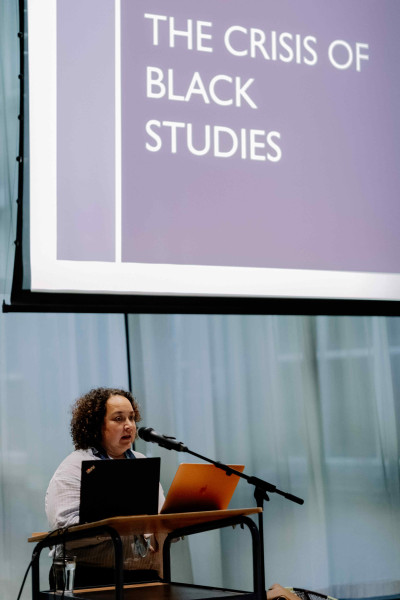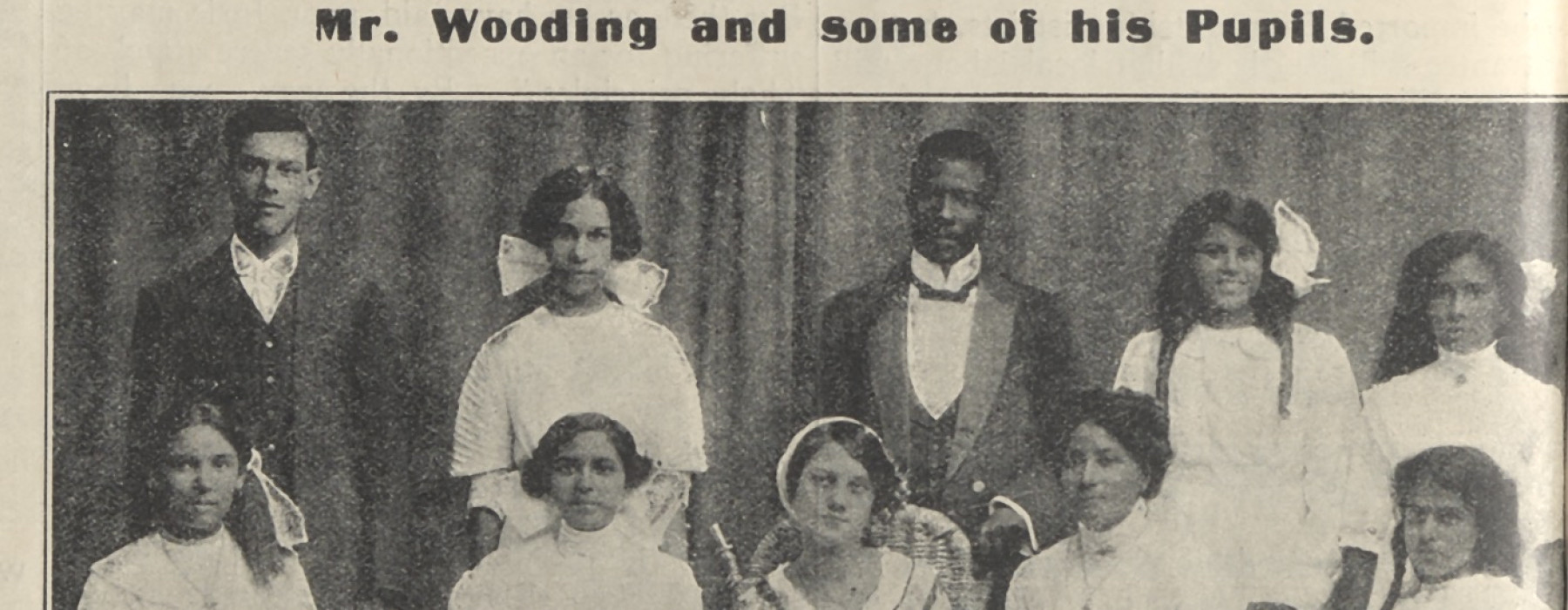
Public Lecture | September 4 , 2024 | 14.45 - 17.00 | Studio, Wereldmuseum Amsterdam
During this lecture, Victoria Collis-Buthelezi wants to name and respond to what she understands to be the contemporary crisis in Black Studies. This crisis is the singularization of Black theory such that the U.S. Plantation experience and its afterlives serve as the paradigmatic Black experience.
This lecture comes out of her forthcoming book, Ends of Empire, Black Liberation (Columbia University Press, 2025) and will be followed by a discussion moderated by Wayne Modest
Registration by the link below.
About the lecture
Victoria Collis-Buthelezi argues that the crisis in Black Studies stems from silences around Black plurality in our theorization of Blackness both in the US (as more Black immigrants from a range of geo-political contexts settle there) and globally (as we apply Black theory born of one paradigm to make sense of racialized Black life across the globe). She responds to this crisis by doing two things. First, she locates Cape Town in wider Black cartographies to reveal that from the 1890s to 1948, Cape Town ordered the texture of Black struggle globally because for many Blacks it was the city in which they could be free. Second, she shows the significance of mineral extraction as another economic paradigm that enacted modes of Blackness and impacted Black struggle for liberation. Two capitalist regimes, the Plantation and the Mine manifest racialized Blackness to facilitate extraction differently. While the Plantation sought to collapse ethnic difference, the Mine has historically amplified it. The goal is to enrich conversations across Black, African, and African diaspora studies such that we come to better understand the points of connection and difference between the multiple forms of labor conscription that threatened and shaped Black life at the start of the twentieth century.
Program
| 14.45 | Registration in Museum Entrance |
| 15.00 | Lecture with Victoria Collis-Buthelezi |
| 15.50 | Discussion moderated by Wayne Modest |
| 16.30 | End of lecture |
About the lecturer
Victoria J. Collis-Buthelezi is an Associate Professor in English, and Director of the University of Johannesburg’s Victoria J. Collis-Buthelezi is Director of the Johannesburg Institute for Advanced Study (JIAS) and the Centre for the Study of Race, Gender, and Class (RGC), University of Johannesburg (UJ). She is also an Associate Professor in English at UJ and a research associate at the Institute for Research in African American Studies (IRAAS) at Columbia University. Prof Collis-Buthelezi’s research centres Black intellectual and literary histories and has appeared in Small Axe, Callaloo, boundary2 and the UK Journal of Arts and the Humanities. Her current book project, Ends of Empire, Black Liberation, explores global frames for understanding Blackness through early twentieth century Cape Town. She is co-editor of the first edited collection of primary sources and thought on race in the Caribbean, entitled The Caribbean Race Reader, set for release later this year. Prof Collis-Buthelezi is on the editorial committee for Small Axe and an editor of the Polity Critical South book series as well as Peter Lang’s Race and Resistance in the Long Twentieth Century.
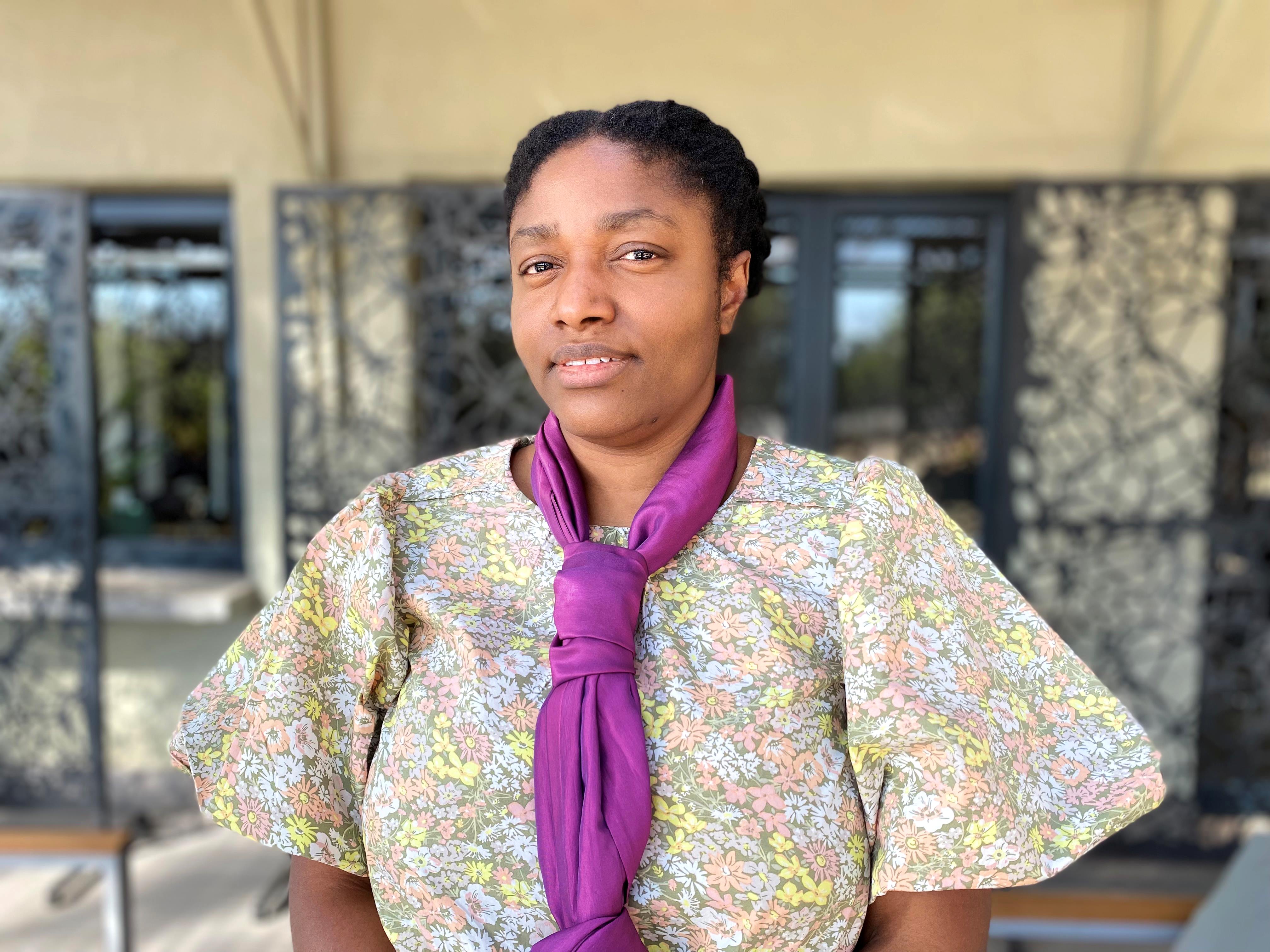
About the moderator
Wayne Modest is Director of Content of the Wereldmuseum (a museum group comprising four locations in Amsterdam, Leiden, Rotterdam and Nijmegen), in the Netherlands. He is also professor (by special appointment) of Material Culture and Critical Heritage Studies at the Vrije Universiteit, Amsterdam.
A cultural studies scholar by training, Modest works at the intersection of material culture, memory and heritage studies, with a strong focus on colonialism and its afterlives in Europe and the Caribbean. His most recent publications include the co-edited publications, Matters of Belonging: Ethnographic Museums in A Changing Europe (2019, with Nick Thomas, et al), and Victorian Jamaica (2018, with Tim Barringer). He is currently working on several publication projects including Curating the Colonial (with Chiara de Cesari).

